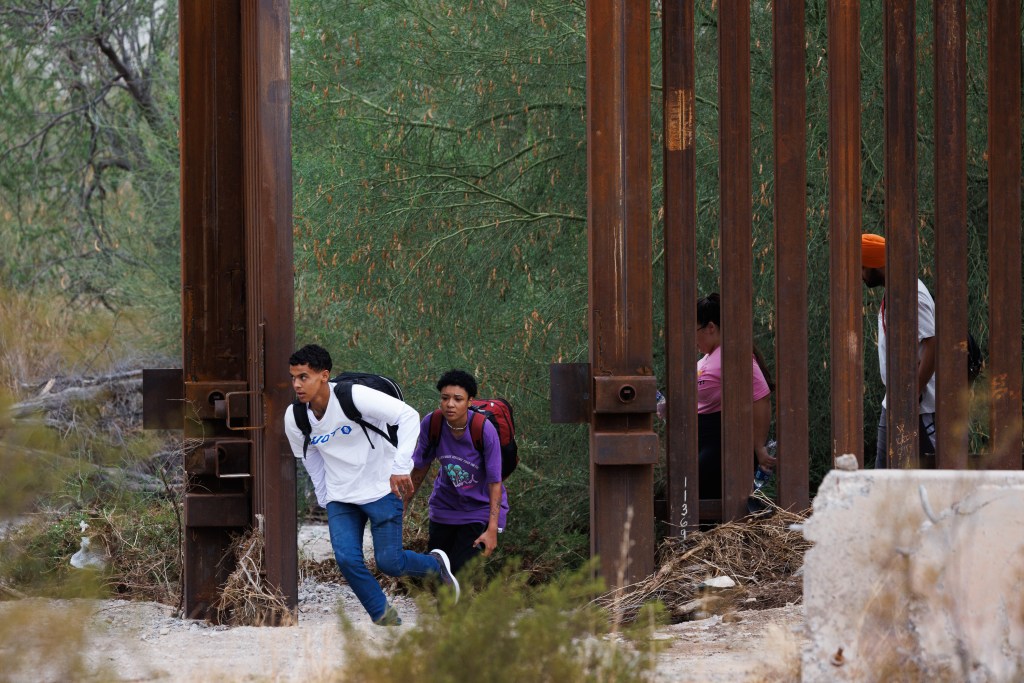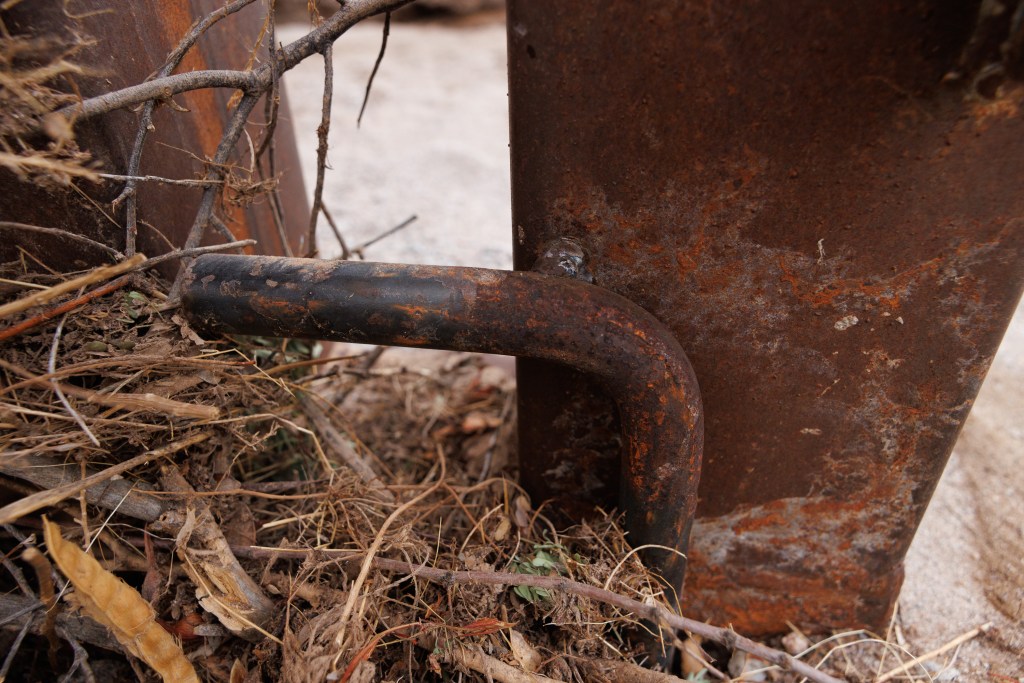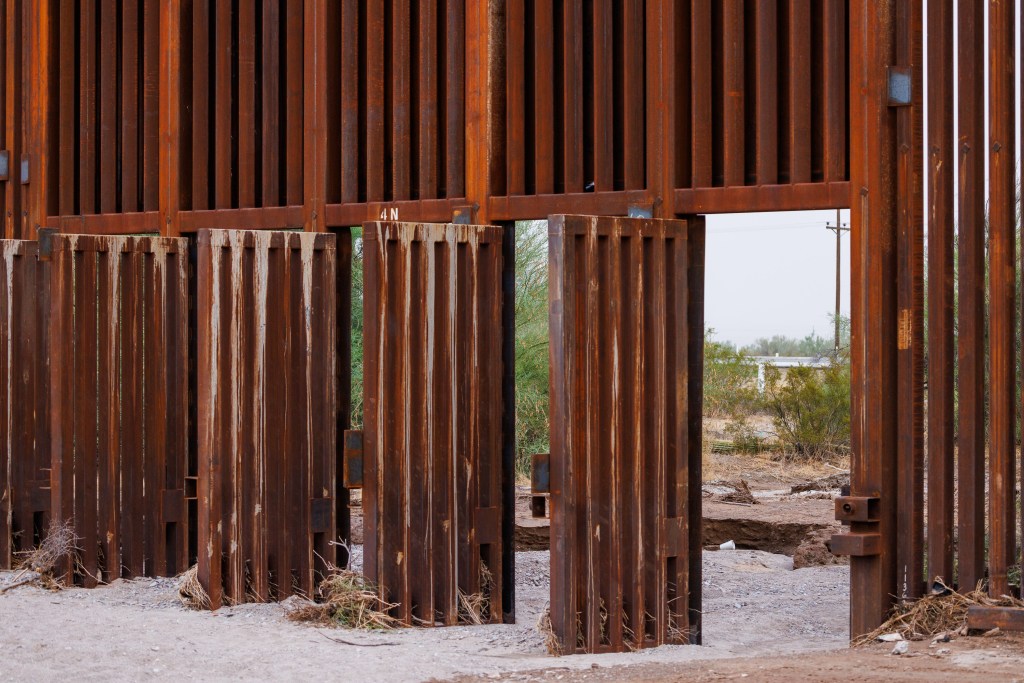Border floodgates finally closed in Arizona
Floodgates welded open on the US-Mexico border have finally been closed — but the nightmare for border agents continues, as migrants are now crushing through the nearest legal point of entry.
As The Post exclusively reported, cartels had been exploiting the 114 open storm gates near Lukeville, Arizona for at least two months — brazenly dropping off van loads of migrants on the Mexican side and guiding them into America — making the Tucson sector the busiest in the US for illegal migrant crossings.
Now, they are simply turning themselves in for processing legally and claiming asylum, which continues to overwhelm the Tucson Border Patrol sector.
“I think we’re seeing more than 2,200 migrants a day; it’s got to be a lot more than that,” one border agent working in the area told The Post.
That estimate is a huge jump from the1,300 migrants a day the Border Patrol said crossed into the Tucson sector in July.
The giant doors in the border wall near Lukeville, Arizona — measuring several feet wide and 12 feet tall — were quietly sealed in the last week, sources confirmed to The Post.
The gates were closed early — as the Border Patrol previously told The Post the doors are opened from June though the end of September for the yearly monsoon season in the Grand Canyon State.
While the gates have been opened in previous years and under previous administrations, they had never been used so brazenly by smugglers to get many thousands of migrants into the US. Tuscon sector recorded 42,561 encounters with illegal and legal border crossers in July alone.
The Border Patrol makes the decision on when and open and close the gates, the agency previously confirmed.
“In my opinion and in the Border Patrol agent’s opinion, those gates should never come open,” said National Border Patrol Council President Brandon Judd in August.
The Post first reported about the open gates Aug. 20, by which point they had been open for up to two months. Despite the clear emergency as migrants were photographed flooding in, they were not sealed for another two weeks.

Agents on the ground believe the tipping point was how it’s taking nearly all of the Border Patrol’s resources in Tucson to handle the migrant influx.
After migrants walk through the floodgates, many seek border agents and turn themselves in, hoping to be allowed to stay in the US while they seek asylum.
“We thought the agents were going to tell us something,” one Ecuadorean migrant who The Post encountered in August said. “But we just walked in.”
The border crossers are then bussed to the closest Border Patrol station in the tiny town of Ajo for processing. That includes being fingerprinted, having a background check run and all their information logged.
Agents have been brought in from Texas to help the understaffed Ajo station process migrants.

But even the extra help isn’t enough.
At least two busloads a day, around 140 migrants, have to be driven to Tucson, two hours away, just to be processed.
Agents assigned to other parts of the Tucson sector, which includes all of the state except for Yuma are being pulled to Tucson to help deal with the seemingly endless waves of migrants.
When the floodgates were first opened, confused Border Patrol agents told The Post they saw no reason for it as they knew the monsoon season would started late this year in mid July, instead of June.

The Post witnessed two Chinese nationals on a motorcycle ride through the gates.
Frustrated agents even went so far as to close the gates multiple times to keep migrants out.
“We tried to shut the gates but the order came down that we had to leave them open,” one source said. “You wouldn’t leave the front door of your house open in a bad neighborhood.”
Then, agents watched in horror as higher-ups in the department made the decision to weld the gates open to prevent agents from shutting them.

Tucson jumped from just over 27,000 border encounters in June to over 42,000 in July, topping traditionally busier border spots at El Paso and Laredo in Texas.
The numbers for August and September are expected to skyrocket, agents believe, with one saying: “We didn’t even make it hard for them. We basically advertised ‘this is how you get in.’ “
Border Patrol said in a statement: “Fencing in the Tucson Sector was constructed at various times between 2009-2021, and throughout the history of the infrastructure, during monsoon season and ahead of potential heavy rains or flood events, CBP has opened stormwater drainage gates to ensure proper drainage and minimizing potential impacts to the infrastructure.”
Read the full article Here


